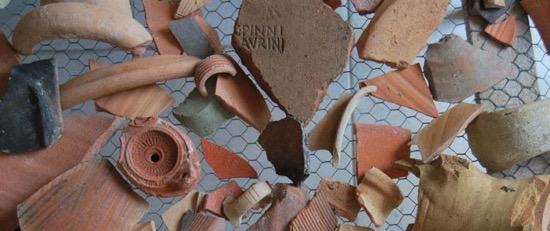
Ancient Egyptian Landscapes and Monuments
By Colin D. Reader
While much is known about Egypt’s towering pyramids, mighty obelisks, and extraordinary works of art, less is known about the role played by Egypt’s geological history in the formation of pharaonic culture’s artistic and architectural legacy. The fertile soils that lined the Nile Valley meant that the people of Egypt were able to live well off the land. Yet what allowed ancient Egypt to stand apart from other early civilizations was its access to the vast range of natural resources that lay beyond the Nile floodplain.
In this engagingly written book, Colin Reader invites readers to explore the influence of geology and landscape on the development of the cultures of ancient Egypt. After describing today’s Egyptian landscape and introducing key elements of the ancient Egyptian worldview, he provides a basic geological toolkit to address issues such as geological time and major earth-forming processes. The developments that gave the geology of Egypt its distinct character are explored, including the uplifting of mountains along the Red Sea coast, the evolution of the Nile river, and the formation of the vast desert areas beyond the Nile Valley. As the story unfolds, elements of Egypt’s archaeology are introduced, together with discussions of mining and quarrying, construction in stone, and the ways in which the country’s rich geological heritage allowed the culture of ancient Egypt to evolve.
Paperback | 9781649032188
74 b&w and 26 color illus.
240 pp.| Jan 2023
EG: AUC Bookstores
US: Indiepubs.com
UK: Bookshop.org
Praise for A Gift of Geology
“Fascinating . . . hugely ambitious . . . .This is a book that should be on every Egyptologist’s bookshelf.”
—Ancient Egypt Magazine
“[A] travel-sized masterclass. . . . The breadth of this volume makes it perfect for anyone wanting to ground their knowledge of ancient Egypt into a geographic reality, and it should be essential reading for undergraduates in the field.”—Egyptian Archeology
“A fascinating overview of the Egyptian landscape and the long geological processes that gave rise to one of the world’s most unique civilizations.”—The Explorers Journal
“[A] congenial . . . easy read. . . . a delight.”—Litro Magazine
“An authoritative, valuable, accessible introduction to Egypt’s geology and its influence on understanding ancient Pharaonic Egyptian culture. Highly recommended. Lower–and upper–division undergraduates. Graduate students, faculty, and professionals. General readers.”—CHOICE
About the author
 Colin D. Reader is a professional engineering geologist who has long been fascinated by the monuments of ancient Egypt. He has visited Egypt on countless occasions to explore the country’s landscape, undertaking geological mapping at Saqqara, led tours into the Eastern and Western Deserts, and has contributed to several TV documentaries looking at aspects of construction in ancient Egypt.
Colin D. Reader is a professional engineering geologist who has long been fascinated by the monuments of ancient Egypt. He has visited Egypt on countless occasions to explore the country’s landscape, undertaking geological mapping at Saqqara, led tours into the Eastern and Western Deserts, and has contributed to several TV documentaries looking at aspects of construction in ancient Egypt.
 An in-person and online lecture with Professor Nuray Ocaklı, Department of History, İstanbul Sabahattin Zaim University:
An in-person and online lecture with Professor Nuray Ocaklı, Department of History, İstanbul Sabahattin Zaim University:













 Our Field Anthropology summer school program (see
Our Field Anthropology summer school program (see  Call for participants – Fieldwork opportunities in Pompeii, the slopes of Mt. Vesuvius, and the Apennines.
Call for participants – Fieldwork opportunities in Pompeii, the slopes of Mt. Vesuvius, and the Apennines.



